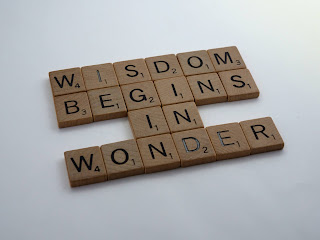Writers need time and stimulation to create. A couple of years ago, our writers group decided to host our own writers retreat. A weekend to go somewhere away from family obligations and routines and write - together and alone, learn from each other, take ourselves seriously. After two years of going to Carolyn’s former step-mother’s beautiful house in the country, we decided to have a day in the city instead. The city being Austin, Texas. We chose four stops and each of us took on the task of creating a writing invitation.
First stop: Thunderbird Coffee - Esmer had four idea-generating prompts. We took one, wrote our list for one minute and then passed it to the next person. Then we picked one thing from any of the four lists, or something totally different, and wrote for five minutes. The four prompts were:
- Words that remind you of inner power
- Poem titles
- Memories you would like to download
- Places you have never been
12:01 A.M
Nothing good happens
After midnight
My grandmother always said
The police came knocking on her door
After midnight
With news of a car crash
Driver had been drinking
After midnight
Probably started before
Passenger wasn’t wearing a seatbelt
After midnight
Didn’t have a chance
The driver was
But this time, it wasn’t enough
The tree was too mighty and big
After midnight
The agony of a mother’s loss
The cry of a mother’s pain
Was overpowering and all encompassing
Like the night
After midnight
-Esmeralda
Our next stop was the independent bookstore Black Pearl Books. We did not realize that it is housed in the same location as the wonderful organization Ten Thousand Villages, a shop where artisans from around the world can sell their products at fair prices. Of course, we had to look around!
Andrea’s invitation for us was to write down the titles of ten books, from any genre. Later we used the words in the titles to generate some writing.
There's a Revolution Outside, My Love.
There's a Revolution Outside, My Love
We Do This 'Till We Free Us
till A Chorus Rises
till we tase The Sweetness of Water
till we see The Evidence of Things Not Seen
in The Anthropocene Reviewed
differences between us -
Almost Zero
we Come in All Colors
Life's too Short, Gilded Ones
-Susan
After lunch we headed to the Blanton Museum. Although Susan had some way for us to be inspired by the artwork in all of Blanton’s galleries, we only had time to visit Black Is Beautiful: The Photography of Kwame Brathwaite. We chose one of the pieces to imagine a conversation, either with us or between the subjects in the photos.
You see me, you see you.
How you see me is how you’ll see you.
My eyes are your eyes.
My hair is your hair.
You see it?
This nose, yours.
These lips, ours.
I am you and you are me.
Remember that when you look into
the eyes, the mind, the heart, the soul, the story
of somebody who looks like me, looks like you.
If you can see me, you can see you.
And if you can see us, then it won’t matter if they can see us.
See us just as we are
Black. Is. Beautiful
-Andrea
.
Public school, Harlem, 1966
Males: We are looking to our future, away from our past. We are strong, we are confident in our worth as people, whether others are or not. We are determined not to depend on others to set our own worth or value. We are standing on the foundation those before us have worked so hard to lay down.
Females: We try to look confident and strong, but we are not completely sure who we are in this day and age. We want to stand proud and BE somebody, but we are also products of a society that judges our worth as females in a certain way - a way that doesn’t encourage personal strength or intellectual achievement. Even more, a society that holds black women to another place entirely. How do we navigate the conflicting demands of this modern age: being proud, free, confident, self-reliant, while also avoiding the clutches of the past with its diametrically opposite expectations?
-Carolyn
Listen!
You ask me
Why am I behind a camera.
Not in front of a march,
Or at a counter,
Or on a bus.
My weapon is my art.
My weapon is my eye.
Through my eye
You will see beauty,
you will love that beauty
You will love the skin that wears it
And the heart that beats underneath it
You will love the beauty that is
Black.
-Susan
We ran out of time and didn’t get to see what Carolyn had planned for us at the Austin Public Library. But no worries! That’s the subject of next month’s post.
Writing needs time and stimulation to grow. Anything can serve as stimulation - the plants in your house, your children, the sounds outside the window, even the dirty dishes. But time, we must steal time if we have to, even if it's just a few minutes, to make something of our words.













